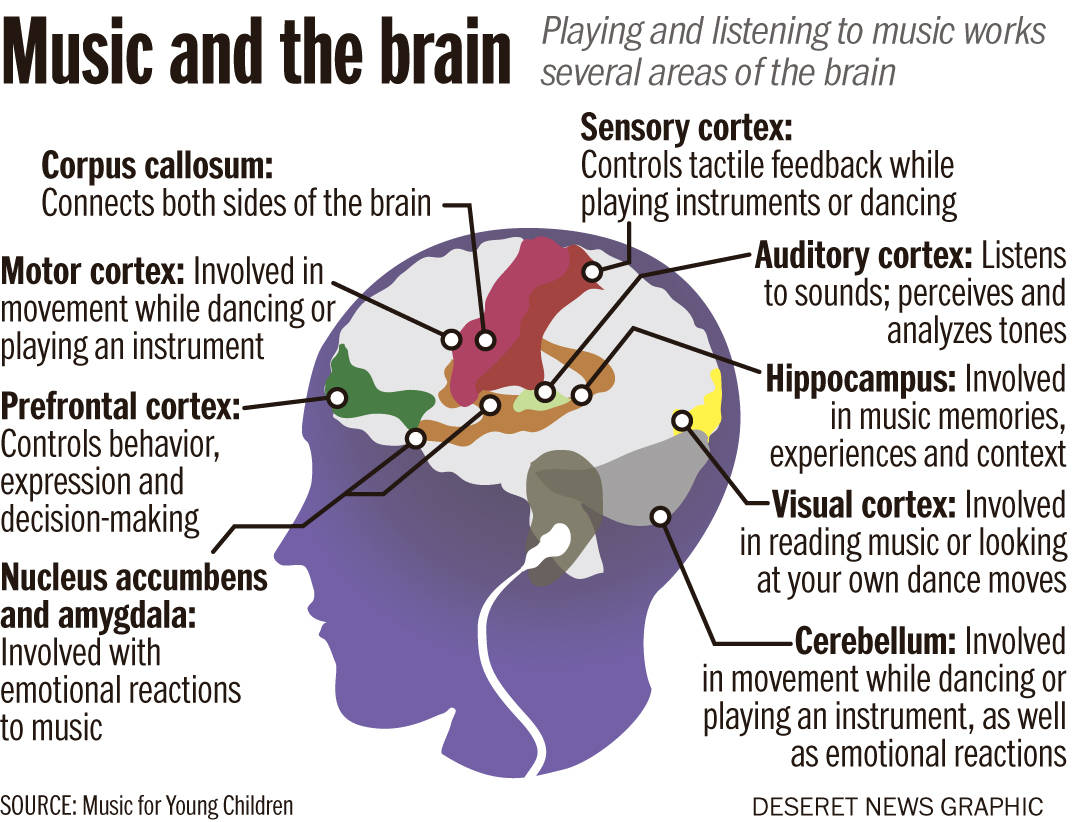Ohio State researchers have found that epileptic patients’ brains process music differently, and hypothesize that music therapy could be used to reduce temporal lobe seizure frequency.
The brainwaves of 21 epileptic and healthy patients were examined as they listened to music, interspersed with moments of silence. The order of the pieces was randomized, and 10 minutes of silence preceded and followed each composition.
Subject brainwave activity increased as they listened to music. Epileptic patient brainwaves were even more synchronized with the music.
Christine Charyton presented the research at a recent APA conference, and summarized: “We found significantly higher levels of synchronization and spectral EEG activation when listening to music in the frontal cortex and temporal cortex, especially in persons with epilepsy. We speculate that music may be useful to enhance electrical activity specific to the frontal and temporal cortices,”
